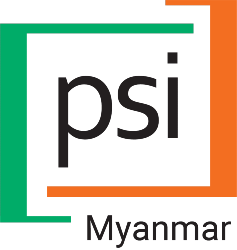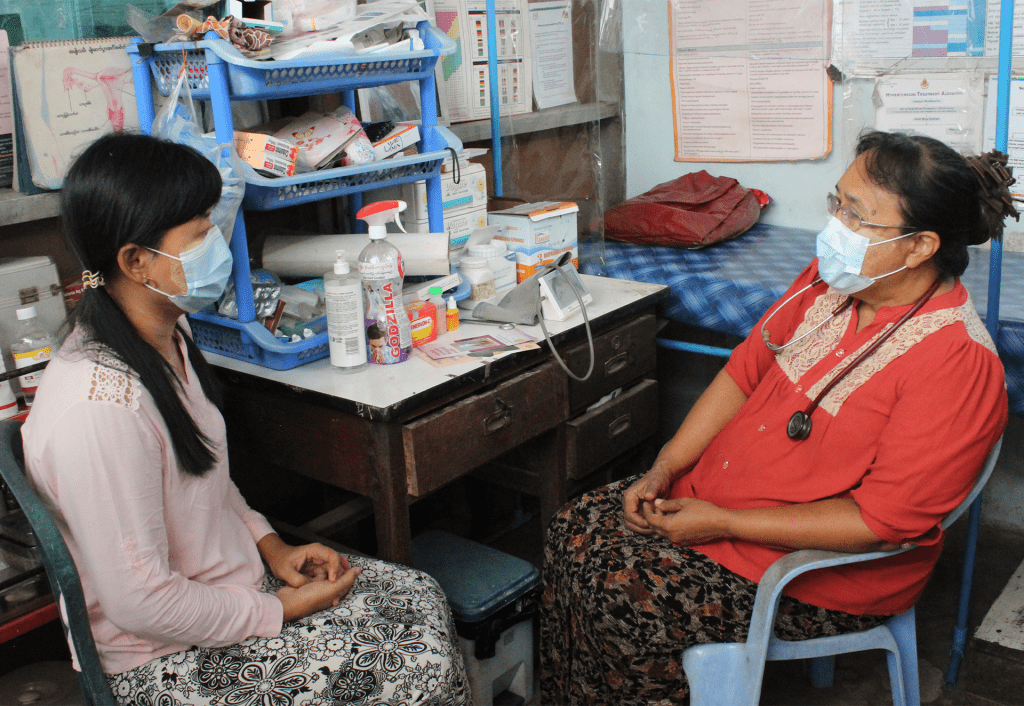Featured Projects
Targeted essential HIV/AIDS services through innovation
PSI Myanmar has provided essential HIV/AIDS services for key populations and people at risk of HIV infection in Myanmar over two decades. PSI Myanmar operates peer-led outreach for improving access to prevention, treatment, and care and monitoring viral load suppression. Collaborating closely with the National AIDS Program, PSI Myanmar is dedicated to further diminishing HIV transmission and related health challenges, aligning its efforts with the strategies outlined in the National Strategic Plan. Over the past years up to end of December 2023, PSI Myanmar's impact has been substantial by distributing 35.6 million condoms to beneficiaries, administering 290,785 HIV testing services to the clients, and providing antiretroviral therapy (ART) to a total of 9,211 patients.
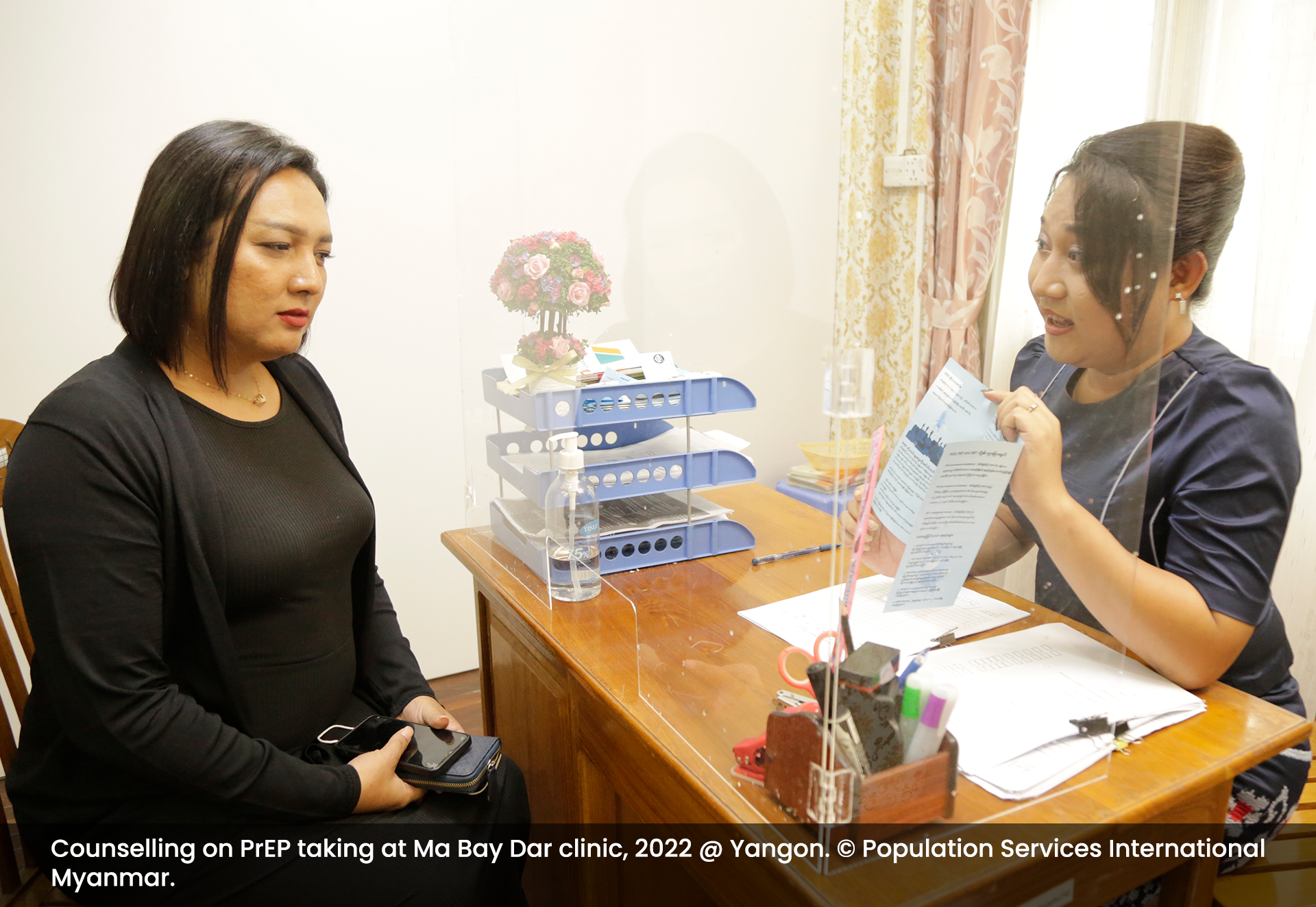
Our valued partner, “Lan Pya Kyel” (LPK) stands as one of Myanmar's largest community-led HIV programs, supporting high-risk female sex workers, men who have sex with men (MSM), and transgender women (TG) with quality HIV prevention and treatment initiatives. Through its dynamic partnership with LPK, PSI Myanmar provides essential funding and technical support to LPK to operate a transgender clinic in Mandalay. Additionally, the groundwork has been laid for an ambitious expansion into additional areas, scheduled to commence in 2024. Under the guidance of the National AIDS Program and with funding from PEPFAR, PSI Myanmar took a proactive role in offering financial assistance and technical guidance to LPK to implement a pre-exposure prophylaxis (PrEP) pilot project among MSM and TG communities in Yangon region. This project evaluated eligibility criteria, uptake, adherence, retention, and seroconversion rates. PSI Myanmar and LPK are dedicated to extending PrEP services to key populations to other regions and states.
PSI Myanmar seeks to bring essential services to key populations through innovative measures that offer autonomy, anonymity, and convenience. This includes HIV self-testing and the ongoing development of a differentiated service delivery model.
Actively detecting tuberculosis
PSI Myanmar, a key partner in the effort to control the epidemic with the National Tuberculosis Program, provides TB diagnosis and directly observed short-course treatment, the international standard of care for TB treatment through Sun Quality Health private provider clinics (Sun clinics) with a public-private mix (PPM) model. To reach at-risk populations residing in urban slums, rural, and remote communities, PSI Myanmar leverages 1,000 community volunteers and 1,500 private pharmacies in TB case detection activities. To combat the high rates of TB in Yangon, PSI Myanmar operates two mobile teams in six high-burden townships, targeting adults living in congested slum areas using mobile digital chest X-ray machines.
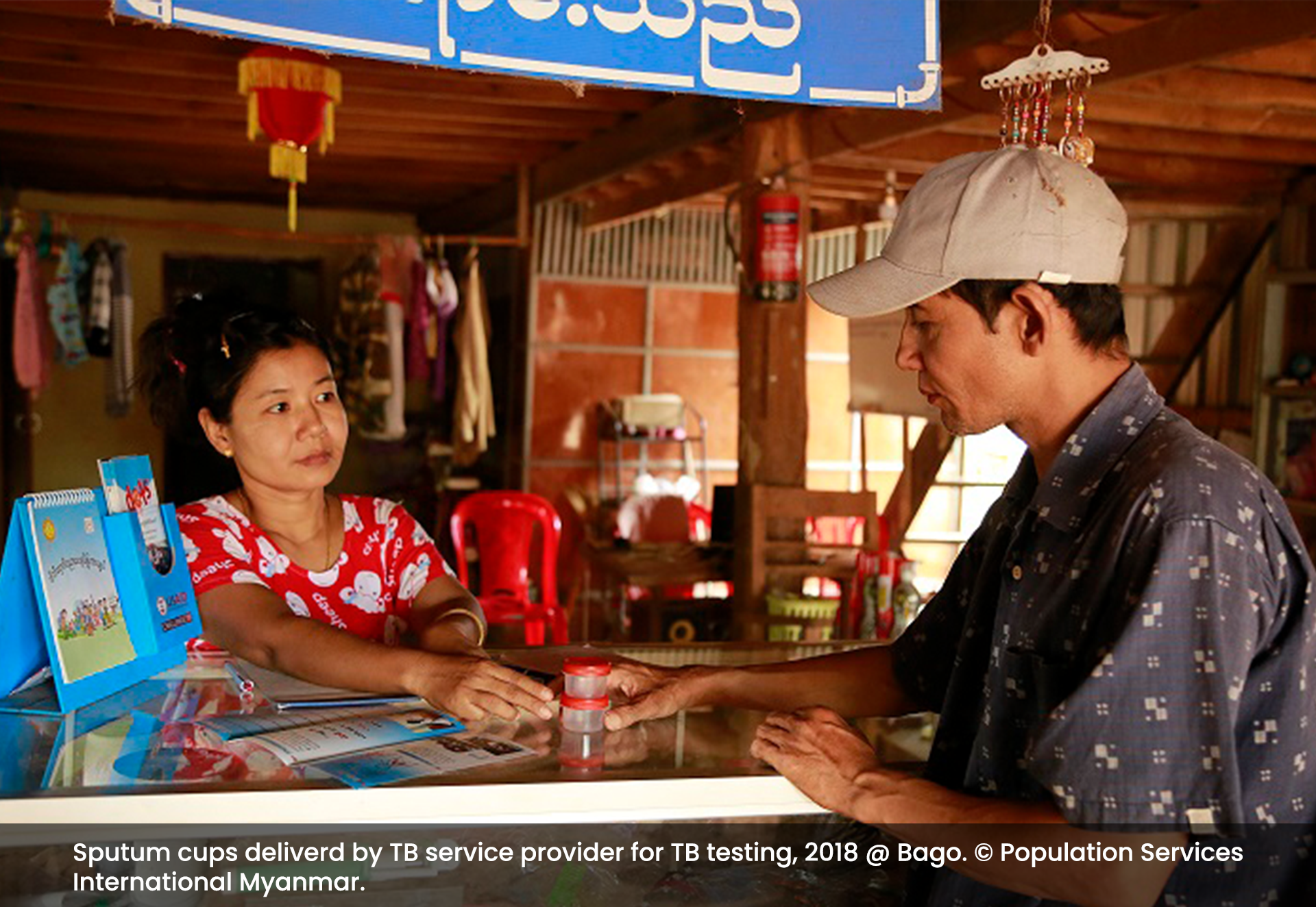
In 2023, more than 90,000 individuals with presumptive TB signs and symptoms were screened resulting in the detection of 20,473 cases. Among these, 16,034 cases were registered at PSI Myanmar’s PPM clinics for treatment, while the rest were registered at public clinics. Over the past 20 years, PSI Myanmar's TB Program has found more than 320,000 TB patients through multiple channels, and it also assisted in notifying 13-14% of Myanmar's national annual TB caseload per year.
PSI Myanmar’s TB Program has rigorously leveraged digital solutions in TB activities, such as behavior change campaigns, social media, a TB chatbot and hotline, digital referral pathways, and digital adherence technology (DAT). This has resulted in patients getting real-time TB medication, reduced labor-intensive in-patient tracking, and promoted community self-screening of TB signs and symptoms. In 2023, PSI collaborated with the private commercial sector to provide a TB self-screening service. Additionally, PSI engaged with the public sector to track daily adherence to medications for drug-resistant patients using video observe therapy and drug-sensitive patients using 99DOTS in the Yangon Region.
Contraception uses on the rise
For more than a decade, PSI Myanmar has provided a wide range of sexual and reproductive health products and services to women across the country through its network of private health providers, village health workers, and pharmacies. In partnership with the government and local organizations, PSI Myanmar continues to promote access to quality short and long-term contraceptive methods to women who need them and to build the capacity of the private sector in more than 200 townships to offer contraceptive products. Up to 2023, PSI Myanmar’s sexual and reproductive health program has impacted 293,105 women through the provision of modern contraceptives.
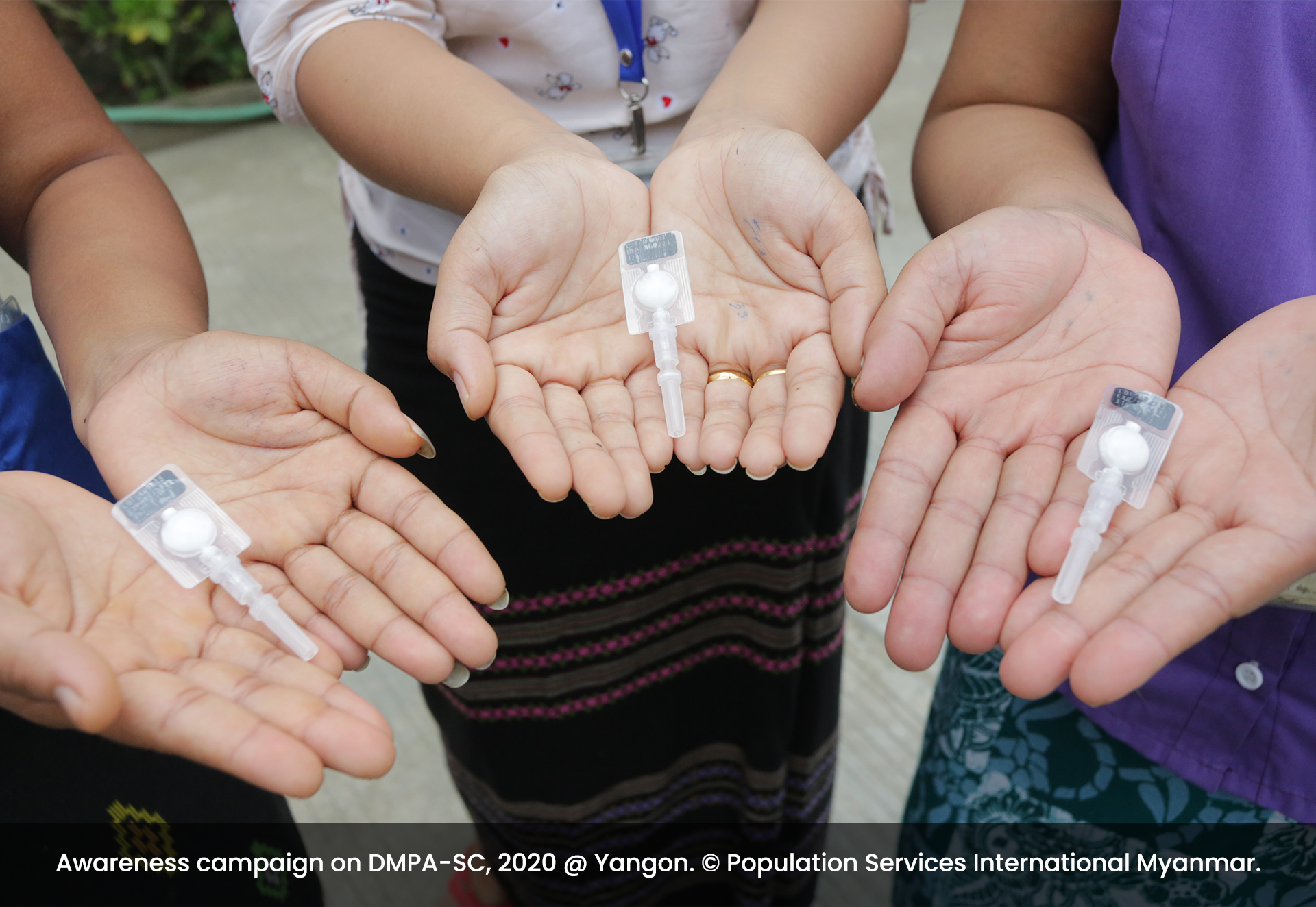
By 2015, the contraceptive prevalence rate in Myanmar had increased to 51.3%, an increase from 37% in 2001. In 2018, PSI Myanmar worked with the Ministry of Health and Sports to introduce an injectable contraceptive, DMPA-SC (also known as Sayana® Press), through Sun Quality Health social franchise network. In 2022, 56,657 units of DMPA-SC were distributed through community volunteers in remote and rural area of Shan and Chin States.
Since 2016, PSI Myanmar has integrated adolescent sexual and reproductive health (ASRH) into its programs by building capacities for adolescent and youth friendly health services among private health providers. Up to 2023, more than 14,000 young people were engaged and impacted with ASRH knowledge and services. Our ASRH social media campaign has reached 10.2 million people and has engaged 3.3 million people.
Low-cost and effective cervical cancer screening and treatment
In response to the rising mortality rate from cervical cancer, PSI Myanmar has initiated a screen and treat approach through the cervical cancer prevention program. Women of reproductive age are screened using a low-cost, but highly effective method: visual inspection with acetic acid. If the visual inspection reveals pre-cancerous lesions, the client is referred for appropriate treatment and follow-up.
PSI Myanmar has demonstrated its commitment to cervical cancer prevention by building the capacity of over 90 healthcare service providers to screen for and treat pre-cancerous lesions of cervical cancer. Up to 2023, 7,305 women were screened, and 427 cases were treated through the cervical cancer prevention program.
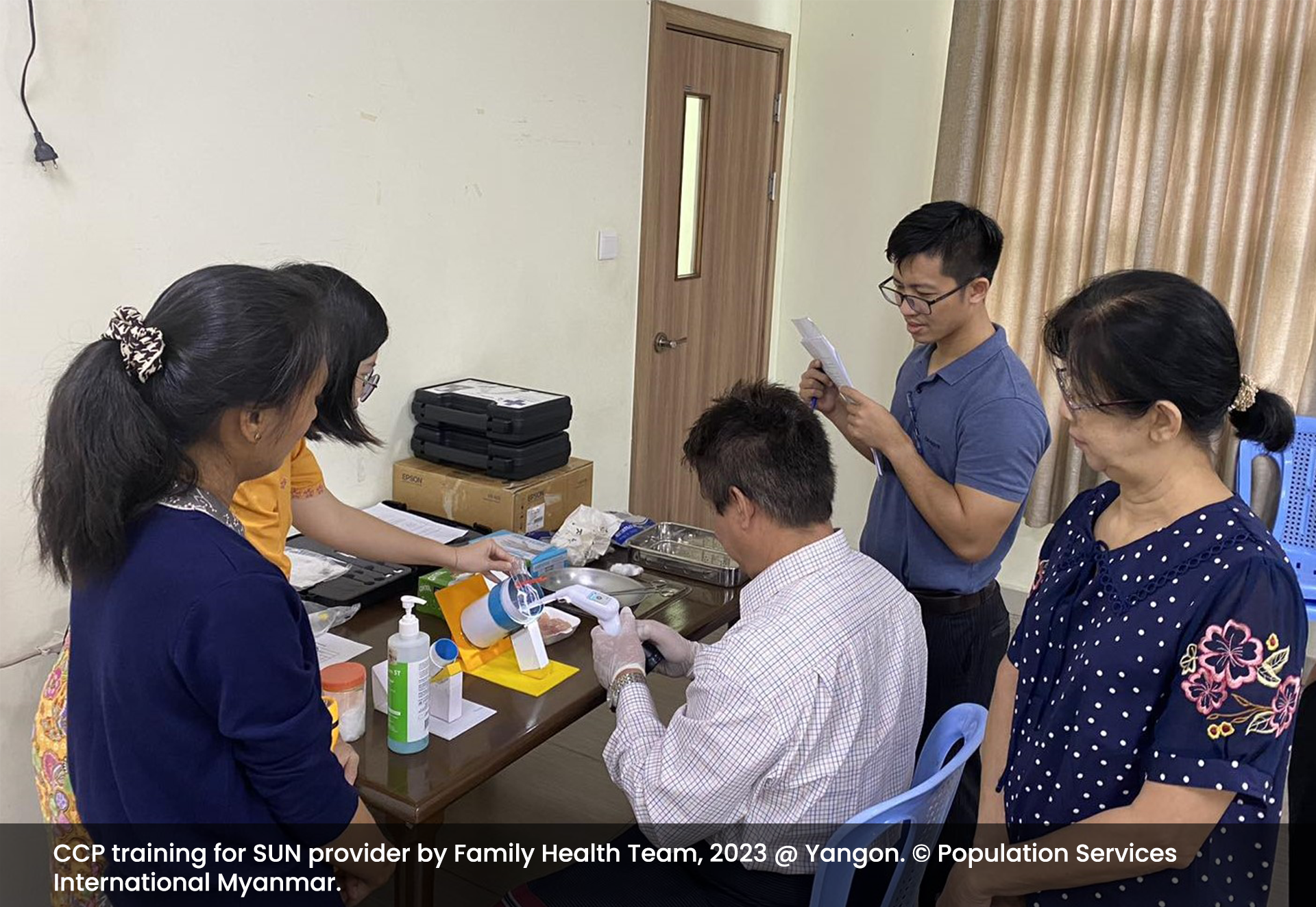
Digital intervention for maternal and child health
There is potential to use digital solutions to improve maternal and child health outcomes in Myanmar. By integrating digital coupon distribution, telemedicine, and social behavior change communication campaigns, PSI Myanmar aims to enhance the availability and quality of maternal and child health services, especially for vulnerable populations, while also providing financial protection. Since 2022, more than 1,500 cases, including high risk pregnancy, childhood diarrhea, and pneumonia have been consulted via telemedicine and more than 100,000 women have been impacted by virtual social behavior change communication campaigns.
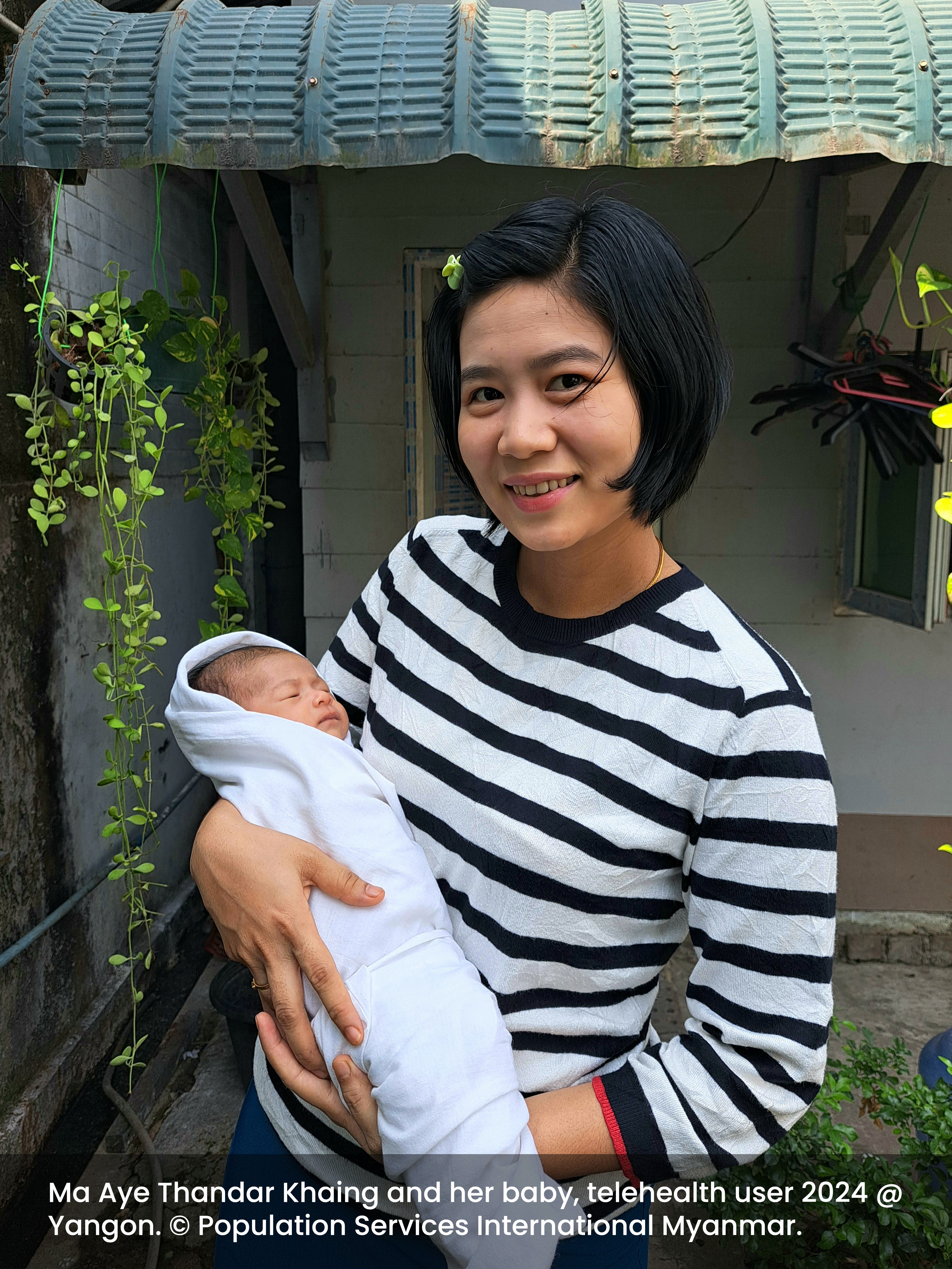
Quality Diagnostics and Treatment for Malaria
The government of Myanmar is committed to achieving malaria elimination by 2030, and PSI Myanmar is playing a key role in reaching this ambitious goal by making bold commitments to help reimagine healthcare, put the consumer at the center, and bring care to the front door. Private health care providers remain a key source of malaria treatment in the Greater Mekong Sub-region (GMS), with between 30-70% of people seeking care from this sector. PSI’s Malaria work in GMS countries, including Myanmar, ensures increasing universal access to quality malaria diagnosis and treatment services by supporting and supervising private providers. Targeting the populations most at-risk of malaria, PSI Myanmar provides quality malaria case management, strategic behavior changes communications, applied operational research, distribution campaigns of long-lasting insecticide treated bed nets, and innovative surveillance solutions through three channels, in both the private and public sectors.
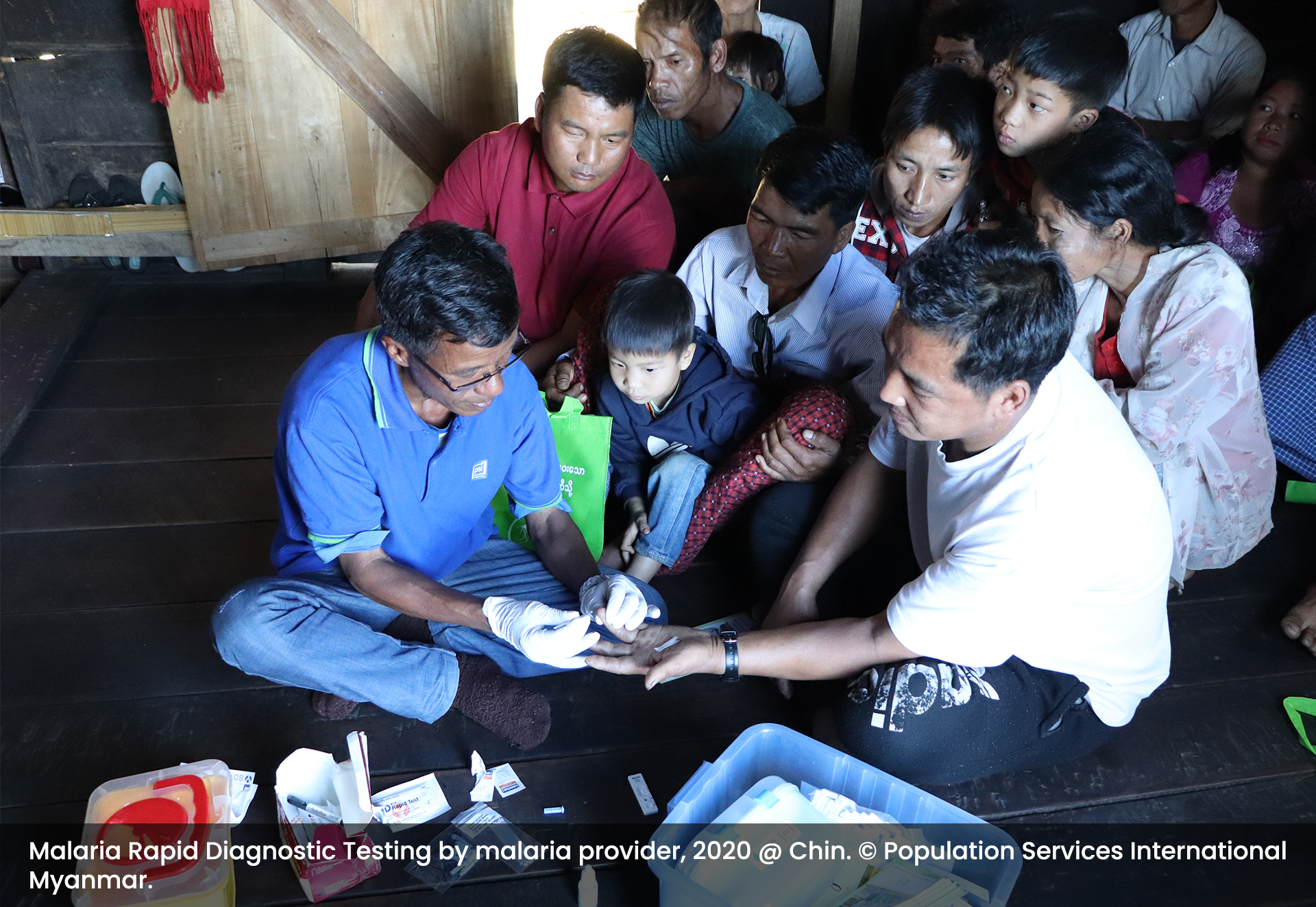
Quality Malaria Case Management, Everywhere
PSI Myanmar is at the forefront of Myanmar’s national malaria elimination effort. Health impact and quality malaria case management are achieved through three primary channels:
1. Sun Quality Health Network
A franchised network of private doctors providing health care, including malaria test and treatment services, through their own pre-existing clinics. This network is present in urban areas. Member doctors participate in intensive disease-specific training and receive a basket of health products, regular refresher training, and routine support visits from PSI field staff, which include quality of care assessments.
2.Integrated Community Malaria Volunteer (ICMV) Network
ICMV Network is managed by 823 trained village level volunteers and is designed to provide healthcare, including malaria, TB, sexual and reproductive health, and child health products and services, to underserved rural communities.
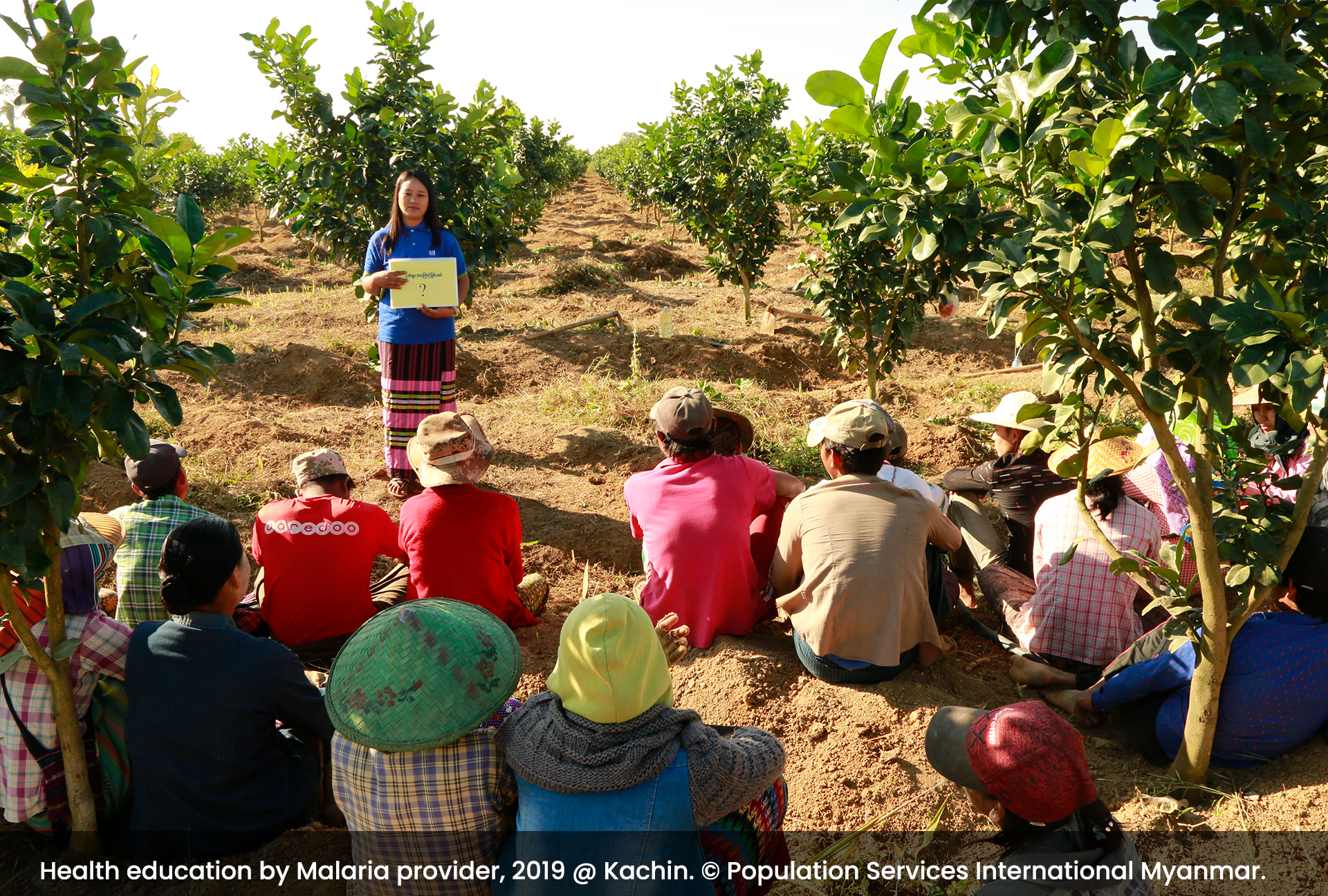
3. Private Outlet Network
The private outlet network includes providers such as drug shops, general retailers, and mobile vendors. In September 2015, PSI began rolling out rapid diagnostic tests among selected artemisinin monotherapy replacement outlets, tapping into significant potential to provide invaluable surveillance data from some of the most remote and inaccessible parts of the country.
From 2019 to 2022, 1,934,312 malaria tests have been administered and 61,047 confirmed malaria cases have been treated through PSI Myanmar’s network of malaria healthcare providers. 262,059 mosquito nets have been distributed via both mass and continuous distribution. PSI Myanmar has also supported 2,115 private and public service providers throughout country.
The Future of PSI Myanmar
Central to PSI Myanmar’s strategy is Consumer-Powered Healthcare (CPH) which places more care and control in consumers’ hands. We reimagine how to bring quality healthcare closer to those who need it the most. We will partner with others to bring the latest medical and technological advances that enable consumers to self-initiate care. We will use evidence and consumer insights to create new opportunities for consumers to access information, social and emotional support, products, services, diagnostics, and treatment to become active participants in their healthcare.
To do this PSI Myanmar will:
- Contribute as a key partner in health security and health system strengthening.
- Continue to collaborate with local implementing partners like Sun Community Health (SCH) and Lan Pya Kyel (LPK) in primary health care services.
- Expand PSI Myanmar’s work in non-communicable disease and self-care and well-being.
- Lead digital solutions that put healthcare into the hands of the consumer and facilitate innovative partnerships between public and private sectors.
- Increase access and achieve value for money for consumers in the health care market through Strategic Purchasing and Universal Health Coverage.
- Expand the role of its Social Business Unit to become a trusted regional partner that offers more than quality products but also excellent health services.
Our values are measurement, pragmatism, honesty, collaboration, trust, and commitment. With these values and strategy, we work for the people of Myanmar to make our mission a reality.
